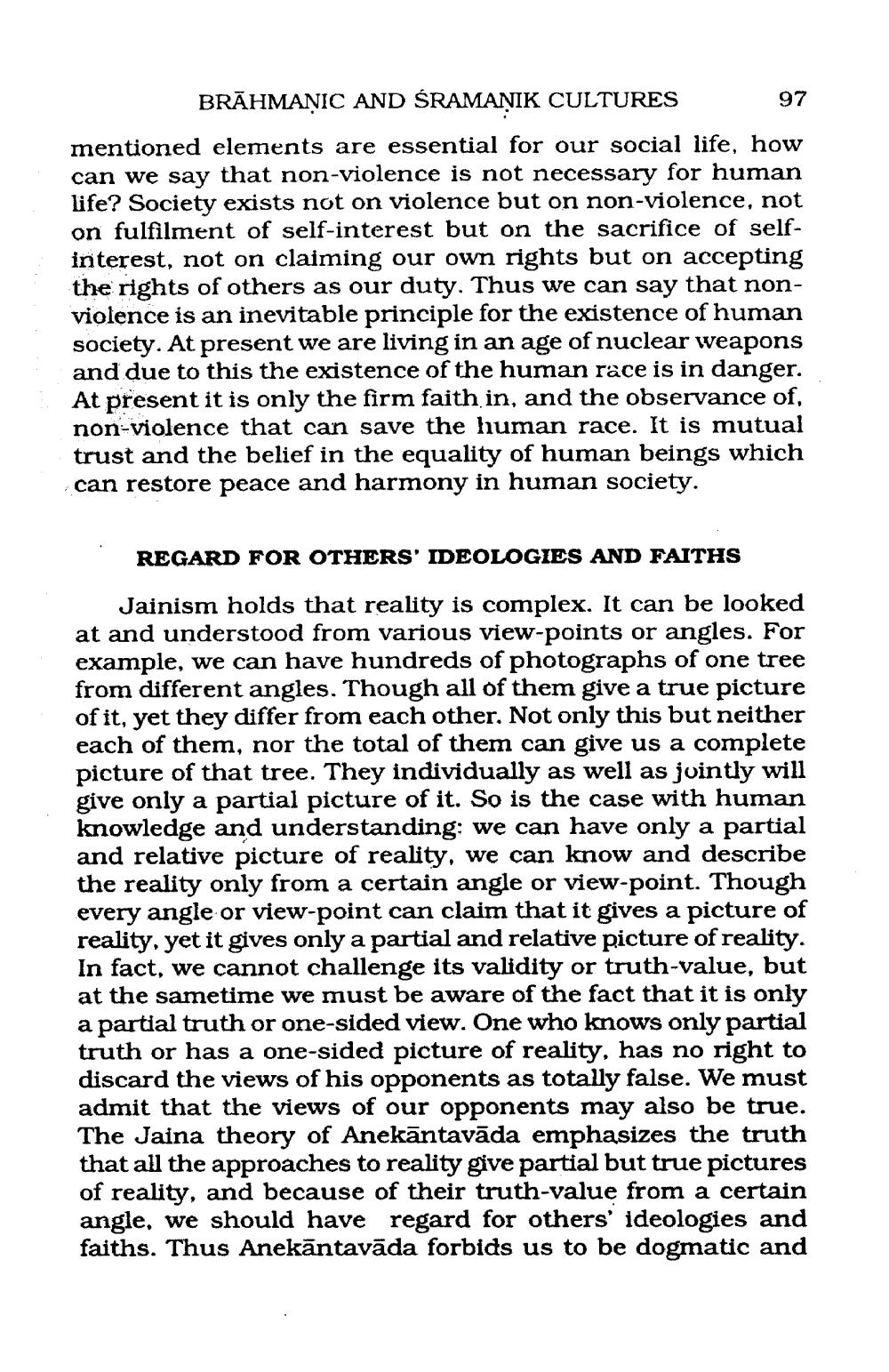________________
BRAHMANIC AND ŚRAMANIK CULTURES
mentioned elements are essential for our social life, how can we say that non-violence is not necessary for human life? Society exists not on violence but on non-violence, not on fulfilment of self-interest but on the sacrifice of selfinterest, not on claiming our own rights but on accepting the rights of others as our duty. Thus we can say that nonviolence is an inevitable principle for the existence of human society. At present we are living in an age of nuclear weapons and due to this the existence of the human race is in danger. At present it is only the firm faith in, and the observance of, non-violence that can save the human race. It is mutual trust and the belief in the equality of human beings which can restore peace and harmony in human society.
97
REGARD FOR OTHERS' IDEOLOGIES AND FAITHS
Jainism holds that reality is complex. It can be looked at and understood from various view-points or angles. For example, we can have hundreds of photographs of one tree from different angles. Though all of them give a true picture of it, yet they differ from each other. Not only this but neither each of them, nor the total of them can give us a complete picture of that tree. They individually as well as jointly will give only a partial picture of it. So is the case with human knowledge and understanding: we can have only a partial and relative picture of reality, we can know and describe the reality only from a certain angle or view-point. Though every angle or view-point can claim that it gives a picture of reality, yet it gives only a partial and relative picture of reality. In fact, we cannot challenge its validity or truth-value, but at the sametime we must be aware of the fact that it is only a partial truth or one-sided view. One who knows only partial truth or has a one-sided picture of reality, has no right to discard the views of his opponents as totally false. We must admit that the views of our opponents may also be true. The Jaina theory of Anekantavāda emphasizes the truth that all the approaches to reality give partial but true pictures of reality, and because of their truth-value from a certain angle, we should have regard for others' ideologies and faiths. Thus Anekāntavāda forbids us to be dogmatic and




